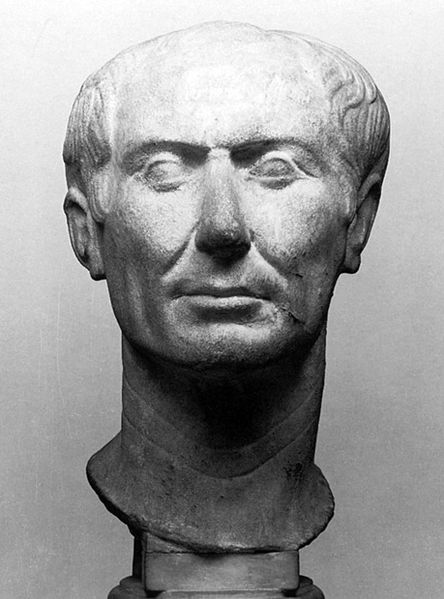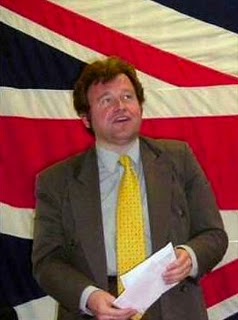– The West’s Darkest Hour –
The following is my abridgement of “The Race’s Gravest Crisis Is at Hand,” the last chapter of William Pierce’s history of the white race, Who We Are:
Since the end of the Second World War the situation and the prospects of the White race have plummeted, both morally and materially.
As bad as the moral condition of the race was before the war, it became incalculably worse afterward. Not since the Thirty Years War had White men murdered one another with such religiously motivated ferocity and on such a scale. But this time the superstitions which had been employed to justify all the killing were not so deep-seated as they had been 300 years earlier.
When the bomber-sown fire storms which had incinerated hundreds of thousands of German women and children in Dresden, Hamburg, and a dozen other cities had cooled; when the last mass shooting of prisoners of war by the Americans was over; when the British had finished delivering hundreds of thousands of anti-communist Croats and Cossacks at bayonet point to their communist executioners in Yugoslavia and the Soviet Union; when the roving gangs of rapists in Soviet-occupied Berlin had finally become sated; when the orgies of murder in Paris and Prague and the other capitals of “liberated” Europe had died down; when the war and its immediate, bloody aftermath were over and the White men of America and Britain had an opportunity to survey their handiwork and reflect on it, the first doubts came.
One of those most directly responsible for the catastrophe, British Prime Minister Winston Churchill, expressed those doubts more bluntly and succinctly than the rest. As he contemplated Britain’s problematic future in a postwar Europe overshadowed by the new grown Soviet colossus during one of his rare moments of sobriety, he blurted out: “We killed the wrong pig.” This was the same Churchill who a few months earlier, in a less sober moment, had symbolized his contempt for the defeated Germany by ostentatiously urinating into the Rhine in the presence of a group of newsmen.
Many of the Western leaders who had been involved in the war had no more moral compunction or sense of responsibility for what they had done than did Churchill. Their hue and cry about “German war crimes” was often the most effective way of diverting attention from their own crimes and the crimes of others.
The details of the history of the postwar era varied in Britain, in America, in France, and in the other Western nations, but the general trends were the same everywhere. The following paragraphs refer specifically to the United States, but the conclusions to which they lead apply to the West generally.
♣
Civil Rights. And then, before anyone could catch his balance and figure out what it meant and where it would lead, the “civil rights” phenomenon burst upon postwar America. What would have been impossible before the war gathered momentum in the late 1940’s and carried all before it in the next two decades. When the smoke began to clear late in the 1960’s, White Americans found that they had bamboozled themselves out of their most precious and fundamental civil right: the right of free association.
No longer could they pick and choose their neighbors, taking reasonable measures to ensure that the racial makeup of the communities in which they lived would not deteriorate; any attempt to do so had become illegal and was punishable with a term of imprisonment in a Federal penitentiary.
No longer could they send their children to schools, supported by their own taxes, which were attended by other children of their own race.
No longer could those of them who were employers hire men and women of their own choosing.
Every place and every social grouping in which the White men and women of America had associated freely with their own kind—residential neighborhoods and workplaces, schools and recreation areas, restaurants and cinemas, military units and municipal police forces—was now open to non-Whites, and the latter were not slow to push their way in.
Multiracial Pseudo-nation. What had been accomplished in the astonishingly short time of a little over two decades was the transformation of the strongest, richest, and most advanced country on earth from a White nation, in which racial minority groups had been effectively excluded from any significant participation in White society except as laborers, to a multiracial pseudo-nation, in which non-Whites not only participated but were a privileged and pampered elite.
The magnitude of the transformation is not apparent to many Whites who were born after it began, but it can be comprehended easily enough by surveying the cultural records of the earlier era. A comparison of magazine advertisements or photographed street scenes, of popular fiction or elementary school textbooks, of motion pictures or faces in high school yearbooks from 1940 with those of the last decade tells the story in stark terms.
Not only was this radical dispossession of White Americans carried out in the name of “justice” and “freedom,” but hardly a shot was fired in the process: all together no more than a dozen Whites fell in the weak and utterly ineffectual resistance mounted against it. More than anything else, this lack of resistance indicates the moral state of the race in the postwar era.
It is true, of course that the Jews, who planned and played a large part in directing the dispossession, had prepared well. A few years prior to the war there were still major segments of the American news and entertainment media in the hands of racially conscious Whites. Major publishers in the 1920’s and 1930’s published books dealing frankly with eugenics, with racial differences, and with the Jewish problem. America’s foremost industrialist, Henry Ford, for a while in the 1920’s was presenting purchasers of his automobiles with complimentary copies of The International Jew, a strongly anti-Jewish book which had earlier been serialized in his newspaper, The Dearborn Independent.
In the 1930’s Father Charles Coughlan, an independent-minded Catholic priest with a radio program which was heard by millions, spoke out strongly against Jewish political scheming, until he was silenced by an order from the Vatican.
But by the war’s end the Jews had fastened their grip so tightly on the media that dissent against their policies was denied any large-scale public hearing. No major newspaper, motion picture company, radio broadcasting network, or popular magazine was left in the hands of their opponents.
Some institutions, most notably the Christian churches, already contained in themselves the seeds of racial destruction and required relatively little effort to be brought into alignment with Jewish schemes. Others (the Ford Foundation is a striking example) were infiltrated, taken over, and turned in a direction diametrically opposite to that intended by their founders.
Profound Moral Illness. In the final analysis, however, none of these things changes the fact of profound moral illness on the part of the White populations of the Western nations in the postwar era. It is an illness with roots deep in the past, as has been pointed out in earlier installments, but in postwar America it bloomed.
It is difficult to analyze the witches’ brew and place exactly the proper amount of blame on each ingredient. There was the trend toward an ever more vulgar and dishonest democracy, which began well before the war and reached a new depth with the advent of Franklin Roosevelt on the national political stage in 1932.
There were the loss of rootedness and the concomitant increase in alienation stemming from the greater mobility of a motorized population.
There was the powerful new propaganda medium of television, with its frightening ability to mesmerize and manipulate.
But it was the unspeakably atrocious crime of the war itself and its effect on those who participated in it which served as the catalyst, causing all the elements to react with one another, and the disease itself to metastasize.
The evil spirit of the immediate postwar period was, at the time, apparent only to an especially sensitive few, while most could not see beneath the superficial glitter of change and motion.
The present threat to the survival of the White race is physical as well as moral: while the numerical balance of the races is shifting rapidly from White to non-White, both in the world as a whole and in most of the formerly White nations of the northern hemisphere, the average racial quality of those in the White camp is declining.
The world racial balance has shifted from 30 per cent White in 1900 to just under 20 per cent White in 1982. By the end of the next decade the world will be less than 16 per cent White. The population explosion in the southern hemisphere which is responsible for this racial shift is largely the consequence of the export of White science and technology, which have dramatically reduced death rates in Africa, India, and other non-White areas of the world.
Postwar racial mixing has been accompanied by an enormous increase in miscegenation. Prior to the war, marriage between Whites and Blacks in the United States was nowhere socially acceptable, and it was illegal in many states. The few mulatto offspring produced were nearly always born to Black mothers and remained in the Black racial community. After the war an unrelenting propaganda brought down all legal and most social barriers to miscegenation, and the second generation of mixed-race offspring is now approaching breeding age.
Grim Recapitulation. To recapitulate the present situation of the White race:
White geographical expansion, which was the rule for the last four centuries, has not only been halted in the 20th century, with the end of European colonialism, but it has been reversed in the period since the Second World War.
There are now more than four non-Whites for every White living on the planet, and the ratio is shifting toward an even greater non-White preponderance at an accelerating rate.
The prognosis is grave. If the present demographic trends continue unabated for another half-century, and if no sustained effort to ensure an alternative outcome is made during that time by a determined and farsighted minority of people of European ancestry, then the race whose history we have traced in these 26 installments will have reached the end of its long journey.
It may linger another century or more in isolated enclaves, such as Iceland, and its characteristic features or coloring will recur with diminishing frequency in individuals for the next millennium, but before the middle of the 21st century it will have reached its point of no return.
Then, gradually or quickly, the race which built the glory that was Greece and the grandeur that was Rome, which conquered the earth and established its dominion over every other race, which unlocked the secret of the atom and harnessed the power which lights the sun, and which freed itself from the grasp of gravity and reached out to new worlds will vanish into the eternal darkness.
And the present demographic trends will continue so long as the political, religious, and social concepts and values which presently circumscribe the thinking of the Western peoples and their leaders continue to have a determining role. For at root it is a moral defect which threatens the race’s survival.
If the will to survive existed among the White masses, and if they were willing to take the necessary measures—which would require that they act contrary to the dictates of the religion—, then the physical threat could be overcome, certainly and quickly. Non-White immigration could be halted immediately, with relatively little effort. Undoing the effects of earlier non-White immigration and of miscegenation would be a much larger task, involving major economic readjustments and undoubtedly a substantial amount of bloodshed as well, but it would be a task well within the physical capabilities of the White majority.
These things could be accomplished, even at this late date. And once accomplished in one major country, they could be extended worldwide, though perhaps not without another major war and its attendant risks. But, of course, they will not be accomplished, because the will to survive does not exist, and has not existed in the White population of any major power since the end of the Second World War. The race’s last chance to overcome its problems in this relatively painless manner died in January 1943, at Stalingrad.
So, much will inevitably be lost during the next few decades. The population balance everywhere will shift even more rapidly toward the non-Whites, the mongrels, and the unfit. The world will become a poorer, uglier, noisier, more crowded, and dirtier place. Superstition, degeneracy, and corruption will be pervasive, even among those Whites of sound racial stock, and much of the best stock will disappear forever through racial mixing.
And repression will certainly increase everywhere: those who stand for quality over quantity and for racial progress will be denied the right of dissent and the right of self-defense, in the name of “freedom” and “justice.”
Ultimately, however, none of these losses need be decisive or even significant, frightening though they may be to contemplate now, and terrible though they may be to experience in the dark years immediately ahead. All that is really important is that a portion of the race survive, keep itself pure physically and spiritually, continue propagating itself, and eventually prevail over those who threaten its existence, even if this take a thousand years; and to ensure this outcome is the urgent task of the racially conscious minority of our people in these perilous times.
A Few Guidelines. A detailed elaboration of this task here would take us beyond the intended scope of this series, which, as stated in the prologue to the first installment, has been merely to provide for its readers a better understanding of their own racial identity. It may be appropriate, however, to conclude the Who We Are series by drawing on its lessons in order to set out a few very concise guidelines for addressing ourselves to the task ahead:
1) The duration of the task will be decades, at the least, and perhaps centuries. History has a very great inertia; a historical process of long duration may culminate suddenly in a single, cataclysmic event, but every major development in the history of the race has had deep roots and has grown in soil thoroughly prepared for it by preceding developments. The course of history now, so far as our race is concerned, is steeply downward, and to change its direction will be no overnight matter, nor will this be accomplished by any gimcrack scheme which promises success without first building a foundation for that success, block by carefully laid block.
2) The workers at the task will be only a tiny minority of the race. Any program which envisages an “awakening of the masses” or which relies on the native wisdom of the great bulk of our people—which is to say, any populist program—is based on a false vision and a false understanding of the nature of the masses. No great, upward step in all of our long history has ever been accomplished by the bulk of any population, but always by an exceptional individual or a few exceptional individuals. The masses always take the path of least resistance: which is to say, they always follow the strongest faction. It is important to work with the masses, to inform them, to influence them, to recruit from among them; but they must not be counted on for determinative, spontaneous support until after a small minority has already, by its own efforts, built a stronger force than that of any opposing faction.
3) The task is inherently fundamental, and it will be accomplished only through a fundamental approach. That is to say, those who devote themselves to it must be pure in spirit and mind; they must understand that their goal is a society based on quite different values from those underlying the present society, and they must be committed wholeheartedly and without reservation to that goal; they must be prepared to outgrow all the baggage of superstition and convention inherent in the present society. Thus, the task is not one for conservatives or right wingers, for “moderates” or liberals, or for any of those whose thinking is mired in the errors and in the corruption which have led us to the downward course, but it is a task for those capable of an altogether new consciousness of the world.
The task is a biological, cultural, and spiritual one as well as an educational and political one. Its goal has meaning only with reference to a particular type of person, and if this type cannot be preserved while the educational and political aspects of the task are being performed, then the goal cannot be achieved. If the task cannot be completed in a single generation, then there must exist, somewhere, a social milieu which reflects and embodies the cultural and spiritual values associated with the goal, and serves to pass these values from one generation to the next. The preservation of a social milieu, just as the preservation of a gene pool, requires a degree of isolation from alien elements: the longer the duration of the task, the higher the degree. This requirement may be difficult of fulfillment, but it is essential. What should be envisaged, then, is a task with both an internal, or community-oriented aspect, and an external, or political-educational-recruiting aspect. As the task progresses and both external and internal conditions vary, the relative weight given to the two aspects will undoubtedly vary as well.
♣
The task set out here is a very large one, and accomplishing it will require greater will, intelligence, and selflessness than demanded from the race in any previous crisis. The danger we face now, from the enemy within our gates as well as the one still outside, is greater than the one we faced from the deracinated Romans in the first century, the Huns in the fifth century, the Moors in the eighth century, or the Mongols in the 13th century. If we do not overcome it, we will have no second chance.
What we must do, however, is understand that all our resources in the coming struggle must come from within ourselves; there will be no outside help, no miracles. If this Who We Are series has helped even a few of us better understand ourselves and the resources therein, then it has accomplished its purpose.
________________________________
Wm. Pierce’s final note: “The 26 installments of Who We Are will be amplified, edited, and consolidated into an illustrated book, which will be published by the National Alliance in the next few months. Watch for an announcement of its appearance in National Vanguard.”








